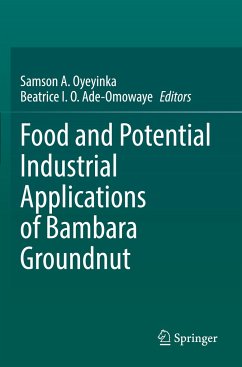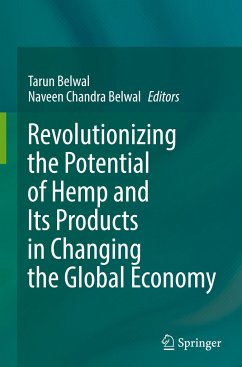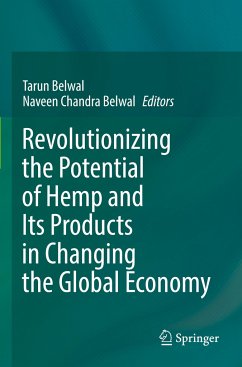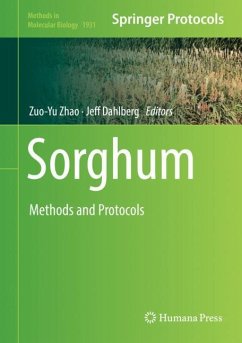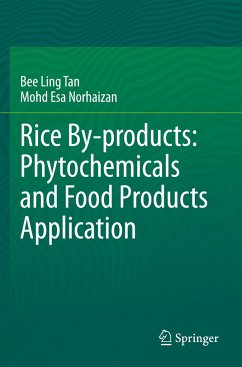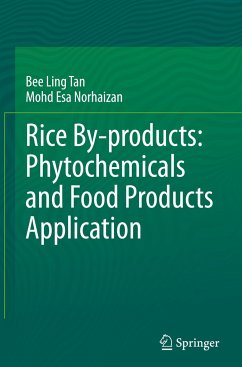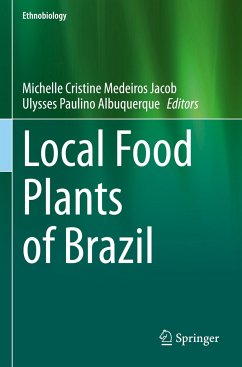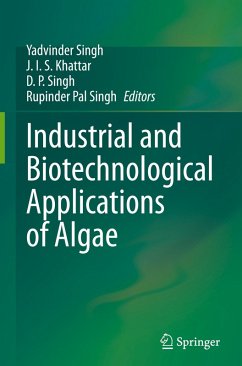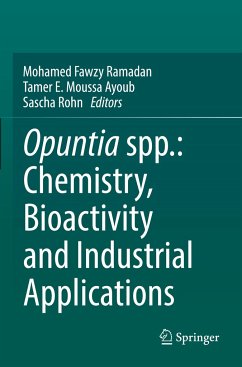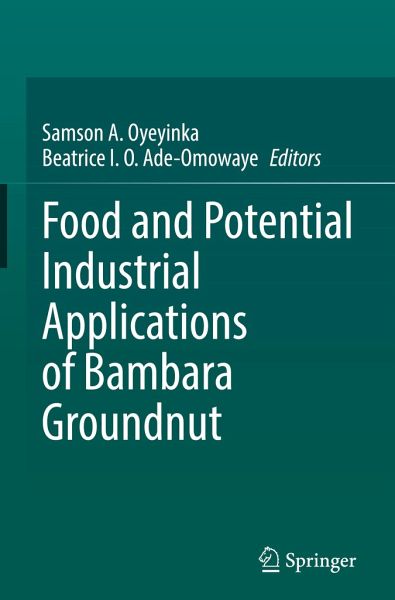
Food and Potential Industrial Applications of Bambara Groundnut

PAYBACK Punkte
68 °P sammeln!
Bambara groundnut (Vigna subterranea) is a crop native to the Bambara tribe of Mali and is grown as a subsistence crop in Africa. Recent advances in research, however, have brought the crop to the forefront of the sustainable agriculture movement.The Bambara plant is highly drought tolerant and rich in protein and carbohydrates, including starch. These macromolecules have enormous industrial potentials. For example, the starch in Bambara grain has been found to exhibit higher (double) viscosity than conventional corn starch. Modified Bambara groundnut starch has been used to produce edible bio...
Bambara groundnut (Vigna subterranea) is a crop native to the Bambara tribe of Mali and is grown as a subsistence crop in Africa. Recent advances in research, however, have brought the crop to the forefront of the sustainable agriculture movement.
The Bambara plant is highly drought tolerant and rich in protein and carbohydrates, including starch. These macromolecules have enormous industrial potentials. For example, the starch in Bambara grain has been found to exhibit higher (double) viscosity than conventional corn starch. Modified Bambara groundnut starch has been used to produce edible bioplastics that could be upgraded industrially to suit the fourth industrial revolution shift.
Bambara plants are also a natural source of soluble fiber, which is gluten-, lactose- and cholesterol-free, with potential as a stabiliser, thickener and gelling agent as well as a cryoprotectant in frozen products. The health benefits include lowering of cholesterol levels, levelling of bloodglucose and as a detoxing aid. Furthermore, several researchers have explored the grain either alone or as composite with cereal and tubers for the development of value-added products.
Food and Potential Industrial Applications of Bambara Groundnut presents in a clear, coherent way the research findings on Bambara grain and its status as a promising food and industrial crop.
The Bambara plant is highly drought tolerant and rich in protein and carbohydrates, including starch. These macromolecules have enormous industrial potentials. For example, the starch in Bambara grain has been found to exhibit higher (double) viscosity than conventional corn starch. Modified Bambara groundnut starch has been used to produce edible bioplastics that could be upgraded industrially to suit the fourth industrial revolution shift.
Bambara plants are also a natural source of soluble fiber, which is gluten-, lactose- and cholesterol-free, with potential as a stabiliser, thickener and gelling agent as well as a cryoprotectant in frozen products. The health benefits include lowering of cholesterol levels, levelling of bloodglucose and as a detoxing aid. Furthermore, several researchers have explored the grain either alone or as composite with cereal and tubers for the development of value-added products.
Food and Potential Industrial Applications of Bambara Groundnut presents in a clear, coherent way the research findings on Bambara grain and its status as a promising food and industrial crop.



